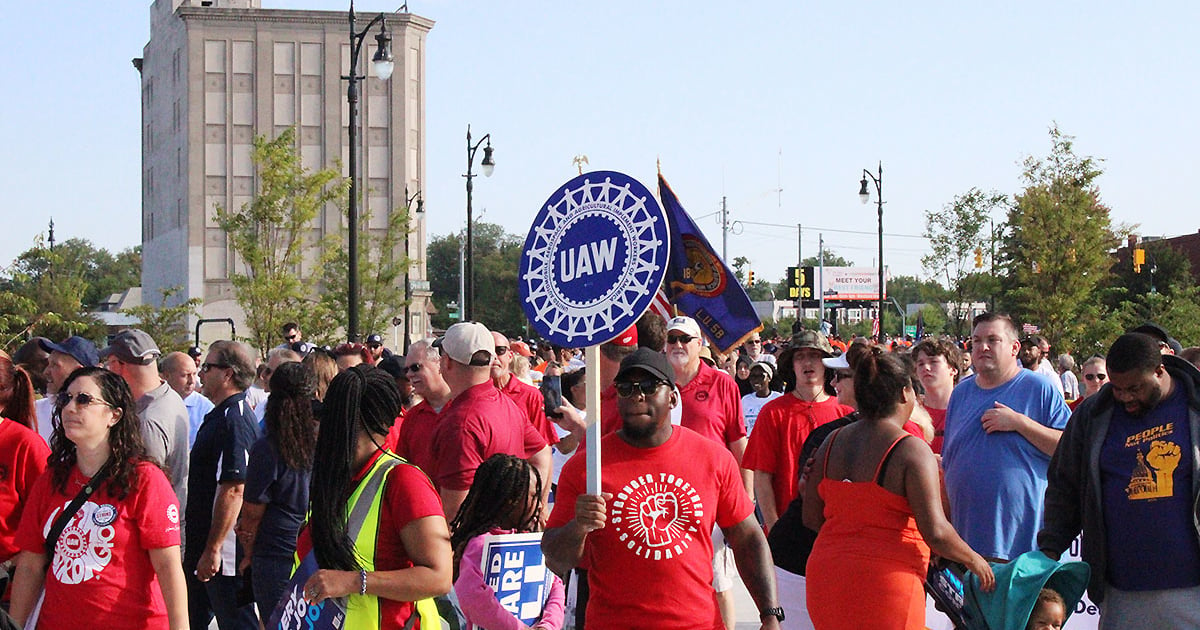
Automotive labor negotiations are a forum for the Detroit 3 and union representatives to agree on a contract that serves the companies and the workers who build their vehicles. It is not a bargaining table for past or present U.S. presidents.
It may be unavoidable that state and federal officials would visit picket lines and rallies, as they have in Michigan and Ohio, to show their support for striking union members. But the involvement needs to stop there, lest they undermine UAW leaders’ authority as negotiators or misunderstand the role of corporations in America.
President Joe Biden said he supports the workers. He has urged Ford, General Motors and Stellantis to work harder to meet the union’s demands.
Biden even took the unusual move of planning to send a White House adviser to help at the negotiating table. UAW President Shawn Fain said he didn’t want Biden meddling in his organization’s affairs, and Biden shifted to a Zoom meeting with union leaders.
Former President Donald Trump also plans to address auto workers in Detroit on Wednesday, Sept. 27, instead of participating in the Republican presidential debate. The UAW released a statement about “fighting the billionaire class and an economy that enriches people like Donald Trump at the expense of workers.”
The government’s role is to ensure that the National Labor Relations Act is followed appropriately, respecting the rights of all four entities that are actual parties to the negotiations.
The UAW already has a federal monitor to watch for wrongdoing by the union’s leaders. Last year, UAW members directly voted for their leader for the first time, rather than relying on a delegate voting system. Unless there’s fresh evidence of intimidation, bribery or other illegal behavior, the government should leave the talks to labor and management.
The political class in Washington already inserted itself into automaker product planning and purchasing with a swath of EV incentives and regulation. Perhaps they could let the respective labor relations departments and union negotiators do their jobs on their own for a while before butting in.
In the end, no party will likely get everything it wants. But the compromises each makes should be decided by their own leaders, not political actors.